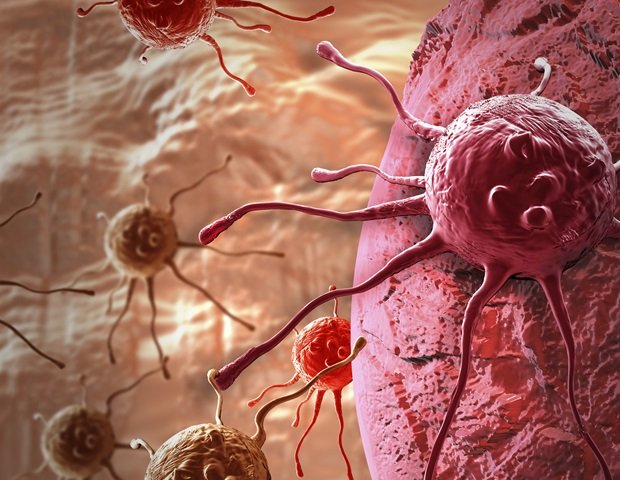A Medical University of South Carolina Hollings Cancer Center researcher is exploring new ways to improve treatment options for kidney cancer patients. Funded by the Department of Defense (DOD) Academy of Kidney Cancer Investigators Early Career Scholar Award, Aguirre de Cubas, Ph.D., will investigate how the immune system can be enhanced to detect and kill kidney tumors . Congress established the award in 2017 to support research with high potential impact and outstanding scientific merit. De Cubas’ approach focuses on rewiring the immune system to better recognize and target cancer cells, offering new possibilities for improving existing treatments.
De Cubas studies renal cell carcinoma, the most common type of kidney cancer, which is often diagnosed at an advanced stage with a poor prognosis. At diagnosis, 30% of patients have metastatic disease with a 5-year survival rate of only 12%. Immune checkpoint inhibitors have been a game-changer in cancer treatment, working to “take the brakes off” the immune system to help it attack tumors. Unfortunately, response rates remain modest, with only 1 in 5 patients with metastatic renal cell carcinoma showing lasting improvements.
To improve the immune system’s detection of cancer cells, de Cubas uses an innovative tool: mitochondrial DNA, or the genetic material inside the tiny powerhouses of our cells. When mitochondria are damaged, they can release DNA fragments into the cytoplasm in a manner reminiscent of a viral infection, alerting the immune system to danger. In many cancers, however, this warning system is turned off, leaving tumors undetected.
De Cubas uses strategies that mimic viral infection and trigger an immune response to cancer cells. One of these strategies involves targeting a BCL-XL protein to damage mitochondria, releasing fragments of mitochondrial DNA that bring the signaling system back online. His work aims to combine strategies that activate viral mimicry with immune checkpoint inhibitors, making tumors more visible to the immune system and less resistant to treatment.
Our ultimate goal is to develop a combination therapy that makes tumors more visible to the immune system, while removing the brakes on it so it can effectively attack the cancer.”
Aguirre de Cubas, Ph.D., MUSC Hollings Cancer Center investigator
De Cubas credits the South Carolina Center for Disparities Research (SC CADRE), a 13-year National Cancer Institute-funded collaboration between MUSC Hollings Cancer Center and South Carolina State University (SCSU), a historically Black college/university, for helped him launch a research career and gather the preliminary data he needed to successfully compete for DOD funding.
SC CADRE is co-directed by Marvella Ford, Ph.D., Endowed Chair, Cancer Disparities and associate director of Population Science and Community Outreach & Engagement at Hollings, and Judith Salley-Guydon, Ph.D., Chair of the Department of Biological and Natural Sciences at SCSU. It aims to create a diverse future generation of cancer researchers specially trained to improve cancer health outcomes for South Carolinians by supporting emerging researchers like de Cubas.
“SC CADRE helped bridge the beginning of my research ideas into a more mature idea,” explained de Cubas. “The program allowed me to develop new directions, collaborate with others and ultimately secure the funding to advance my work.”
De Cubas’ DOD award, which will allow him to establish his own independent laboratory, exemplifies the power of collaboration in advancing cancer treatment and awareness. By connecting research expertise with community-focused initiatives, SC CADRE is shaping the future of cancer treatment and creating opportunities for a diverse generation of scientists.
